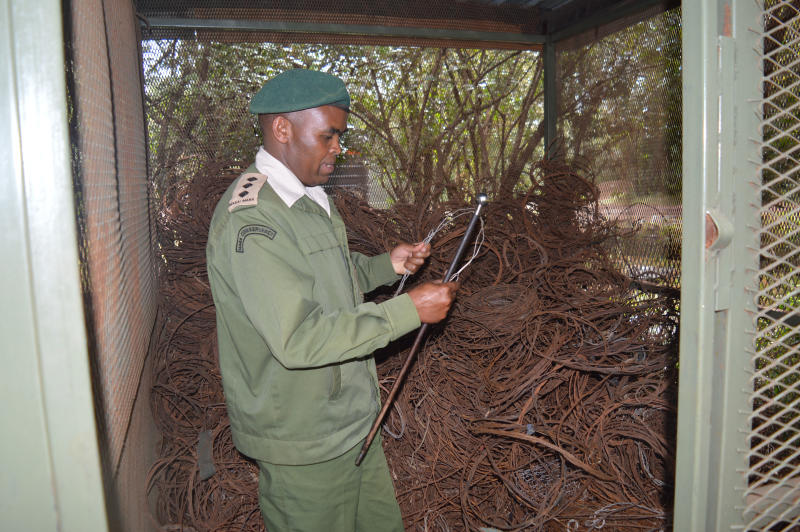×
The Standard e-Paper
Smart Minds Choose Us

A store full of snares, spears and other weapons used by poachers stands in the administration block at the Mara Triangle, a conservancy within Masai Mara National Reserve.
This is testament to untold stories of threats facing wildlife and rangers.